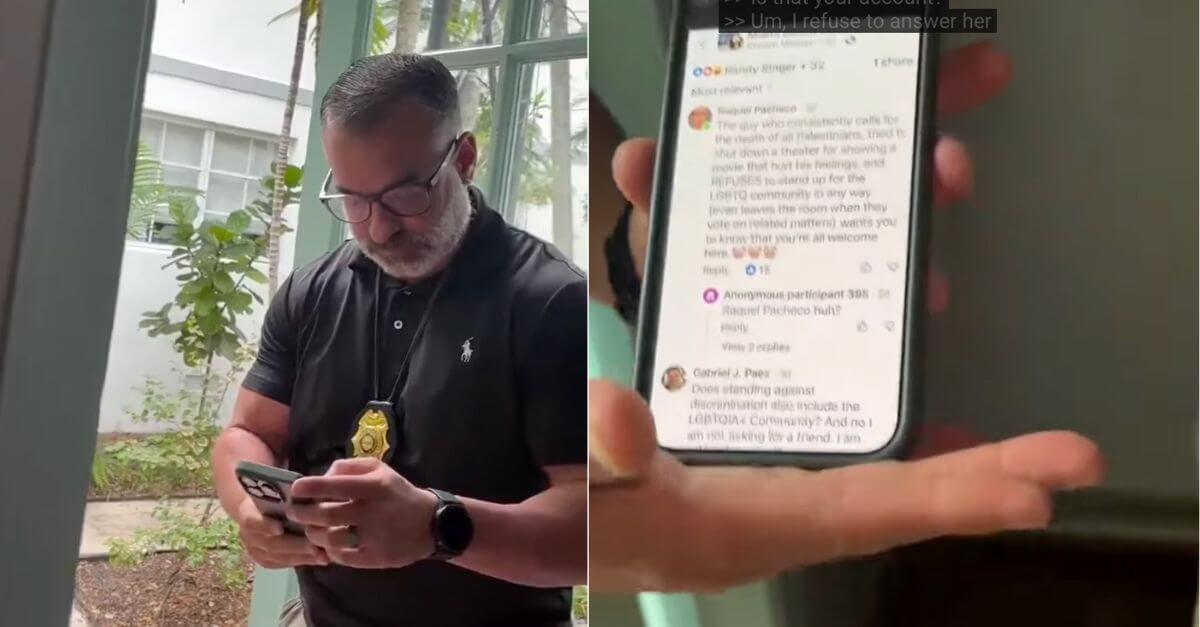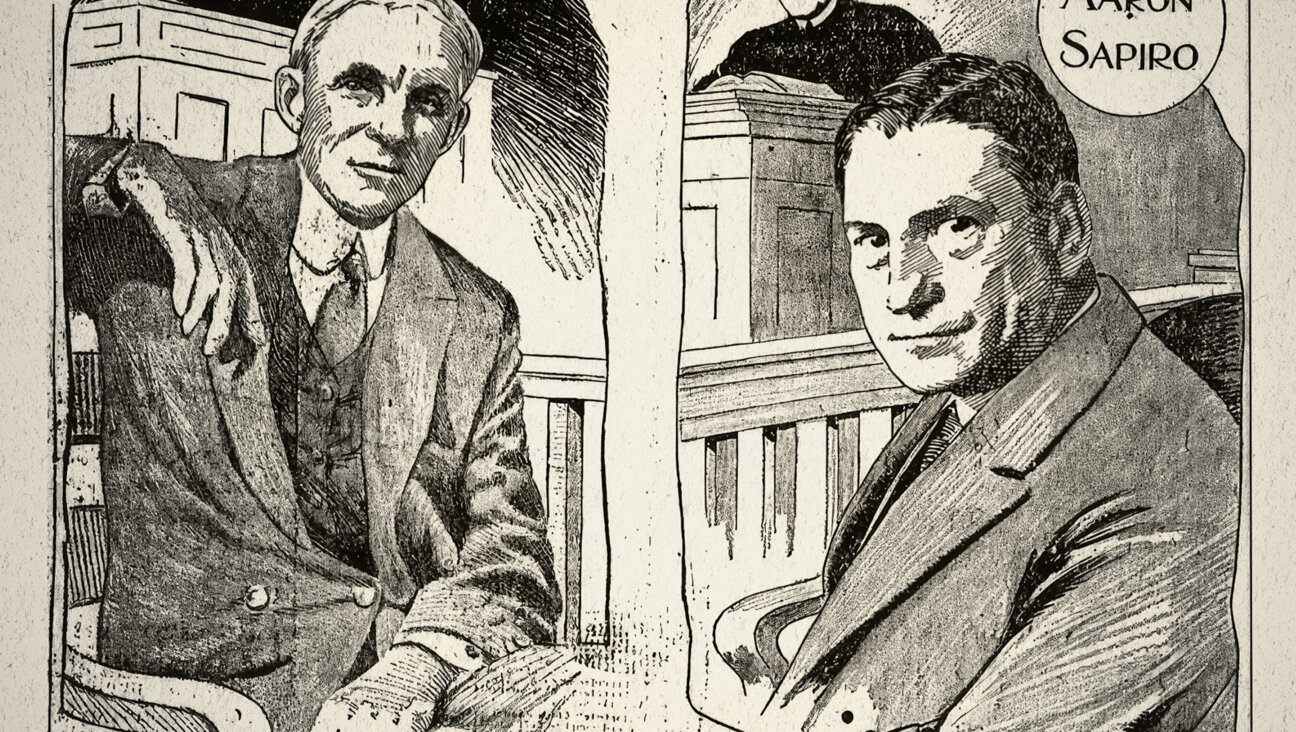Virtual Stumbling Blocks Holocaust Memorial to Jews Launched in Munich

Virtual Step: German artist Gunter Demnig works on his ?Stumbling Blocks? Holocaust memorial. Now, the project has gone digital in Munich. Image by getty images
A virtual Holocaust memorial has been launched to remember Jewish victims from Munich.
Visitors to the Bavarian capital can now see the biographies of hundreds of Jewish victims of the Holocaust as they pass by their former homes, thanks to a new app launched last week called Stolpersteine Muenchen, or Munich Stumbling Blocks.
Martina Bachmann, who is not Jewish, launched the app with business partner Sacha Bertram, who has a Jewish father. Bachmann told JTA that the aim is to create a digital memorial to all Munich victims of the Nazi regime, using 8,000 biographies. “Every person who was victimized and for whom we can find the biographical information,” Bachmann said.
The app is a virtual version of the small brass memorials, called “stumbling blocks,” located in many German cities today, with the notable exception of Munich.
Munch does not have these memorials because Charlotte Knobloch, head of Munich’s Jewish community and the statewide Bavarian Jewish organization, has opposed these memorials — small brass stones set into the sidewalks in front of buildings from which Jews were deported — as disrespectful, since they can be stepped on.
Some 9,000 Jews were living in Munich when the Nazis came to power in 1933. By 1939, many Jews had fled Germany. Ultimately, nearly 3,000 Munich Jews were deported; fewer than 300 returned after the war.
The Stumbling Blocks memorial project was launched by Cologne artist Gunter Demnig in 1993, and has been introduced in hundreds of cities in Germany and former German occupied countries.
Virtual stumbling block apps already have been launched in Berlin and Hamburg, where there are also real stumbling blocks, said Terry Swartzberg, head of the Stolpersteine Initiative in Munich.
The Munich initiative has collected thousands of biographies, which are the sources for the virtual stones.















